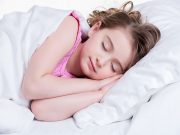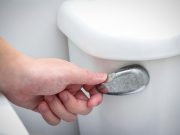Tag: Bedwetting
Deep Sleep, Daytime Control Key to Nocturnal Enuresis Management
Deep sleep and daytime urinary control more common in the treatment-responsive group
Globally, One in 13 Youth Experience Nocturnal Enuresis
Family history, urinary tract infection, parental death, and male sex significantly increase the odds
Tonsillectomy Effective for Nocturnal Enuresis in Children With Sleep Apnea
Pooled overall remission and complete remission of nocturnal enuresis only 37.3 percent based on randomized controlled trials
Nocturnal Enuresis More Common in Children With Sleep Apnea
Adenotonsillectomy tied to significant improvement in about 50 percent of children with both conditions
Vitamin Deficiencies Common in Children With Nocturnal Enuresis
Vitamin D, B12 deficiencies found to be common
Predictors of Nocturnal Enuresis Include Stressful Events, Toilet Training Practices
Child sex and drinking caffeine before bed are also significant predictors
Some Children With Severe Bedwetting See Resolution After Discontinuing Absorbent Pants
However, discontinuation tied to effects on sleep and quality of life
Caffeine Restriction Can Improve, Reduce Severity of Bed-Wetting
Reduction seen in the mean number of incidents with caffeine reduction, and significant reduction in enuresis severity
Bladder Function Disorders Common in Refractory Nocturnal Enuresis
Diminished functional capacity, reduced bladder compliance seen in refractory monosymptomatic and nonmonosymptomatic nocturnal enuresis
Tx Response Rate Increased With Lower First-Morning Urine Osmolality in Nocturnal Enuresis
Higher treatment response rate at one and three months seen for children with nocturnal enuresis with lower first-morning urine osmolality














